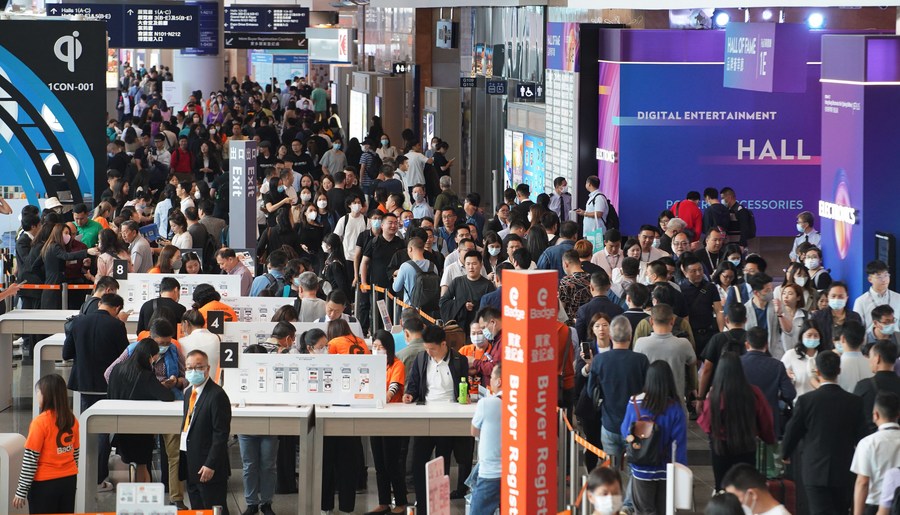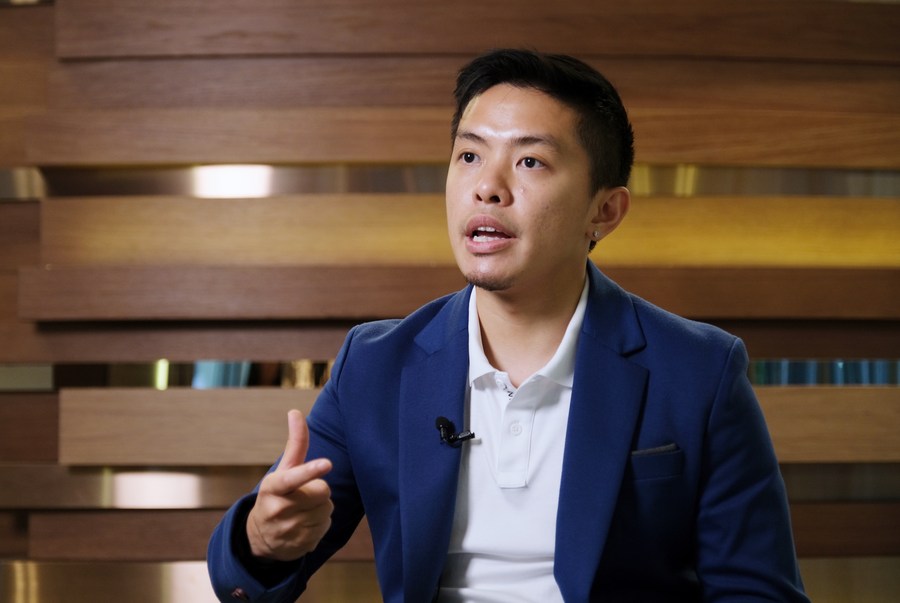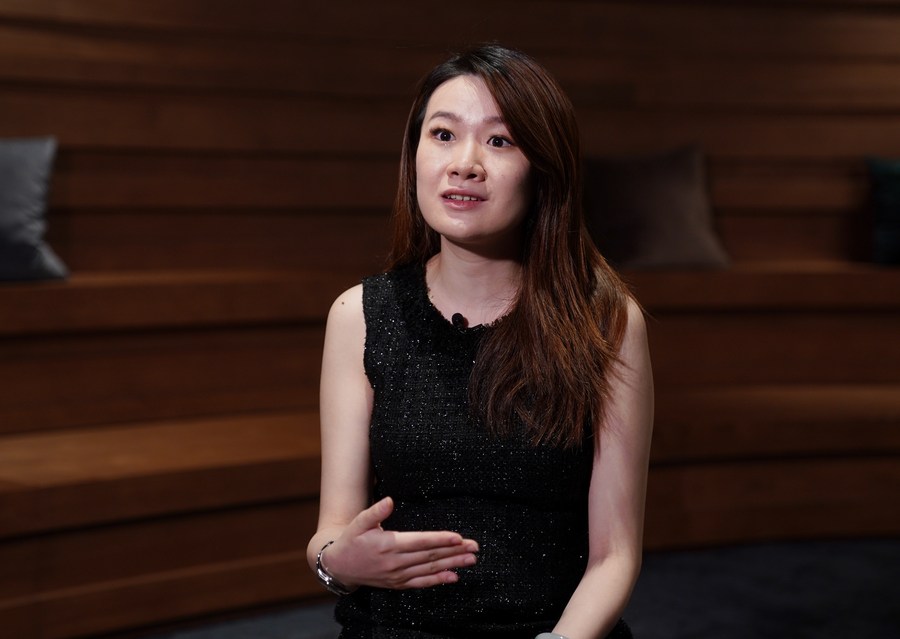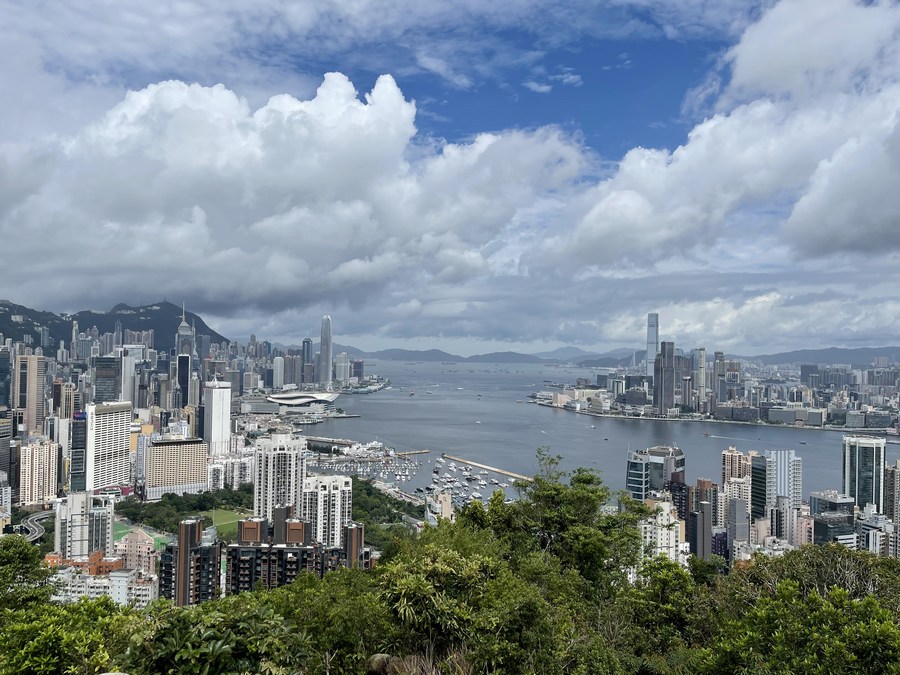[ad_1]

Photo taken on April 12, 2023 shows Hong Kong’s first international innovation expo InnoEX, jointly organized by the Hong Kong Special Administrative Region (HKSAR) government and the Hong Kong Trade Development Council (HKTDC), and held at Hong Kong Convention and Exhibition Center in Hong Kong, south China. (Xinhua/Lv Xiaowei)
InvestHK data show the number of startups in Hong Kong and the number of staff they employed reached a record high in 2022.
By Xinhua writer Lu Yun
HONG KONG, July 1 (Xinhua) — When Hong Kong-born and bred entrepreneur Kelvin Tang quit his high-paying executive tech job in London and started his own business, he finally felt that his life was headed in the right direction to combine his life passions: innovation, creativity and business.”
I just want to wake up feeling excited about what I do. And I have known I would start my own business since I was 13 years old,” said Tang, 31, co-founder and CEO of PONS.ai, an artificial intelligence (AI)-powered art tech marketing platform.
Tang’s choice is not so typical for young people in Hong Kong, who tend to look for financially secure and stable jobs in finance, law and medicine after college graduation. But entrepreneurship is increasingly an alternative option, as the city improves its startup ecosystem to boost entrepreneurship and innovation.

This photo taken on May 31, 2023 shows Hong Kong entrepreneur Kelvin Tang in an interview with Xinhua in Hong Kong. south China. (Xinhua/Wang Shen)
According to InvestHK, the city’s investment promotional agency, the number of startups in Hong Kong and the number of staff they employed reached a record high in 2022, with 72 percent of the founders identifying themselves as Hong Kong locals.
For Tang, setting up an art tech firm seemed like a natural choice because Tang co-founded the award-winning rock band Pandora and was the lead singer. In addition, his university major was in neuroscience, which gave him a technical background and contributed to his interest in AI, while his work experiences in investment banking, consulting and tech provided him with an all-rounded understanding of the business world.
Connecting the dots, Tang launched PONS.ai in 2021, with an aim to empower artists worldwide and help them earn additional income. Through exhibitions globally, he realized that many businesses are also interested in his company’s generative AI technology and the team quickly developed B2B features.
Finding a scalable business model that works globally soon became the top priority. For the past year, Tang made many trips to the Chinese mainland and overseas, where he met with potential partners and worked with them to refine the product.
Now, the company is tapping into the giant global e-commerce market by offering merchants AI-generated digital art, images, short videos and social media captions to better market themselves.
“Developing products customers love” is a secret that Tang learned in the process of growing his business. It is also one of the key lessons that Hong Kong InnoX Academy, a non-profit institution with a focus on educating entrepreneurs, tries to pass on to aspiring entrepreneurs.

This photo taken on June 5, 2023 shows Nicole Lin, director of external partnerships of Hong Kong InnoX Academy, in an interview with Xinhua in Hong Kong, south China. (Xinhua/Wang Shen)
“We want to create a better innovation ecosystem so that more young people here in Hong Kong would see building a tech startup as a possible career path,” said Nicole Lin, director of external partnerships with the academy.
As an international financial center, Hong Kong is renowned for its service sector, while the manufacturing sector’s share of gross domestic product is only about 1 percent. This raises doubts as to whether the city is able to take advantage of its competitive edge in research and development and to cultivate innovation as a new growth engine.
The Hong Kong Special Administrative Region (HKSAR) government has already realized the urgency of diversifying its industries and rolled out a series of schemes in the past few months to attract talent, especially those specializing in science and technology.
More importantly, the city is stepping up science and technology collaboration with the mainland, especially with cities in the Guangdong-Hong Kong-Macao Greater Bay Area (GBA), renowned for their manufacturing capability.
Lin said that Hong Kong has its own competitive edge in developing the science and technology sector, especially in the early stages of startups. In fact, there have been 18 unicorn firms with “Hong Kong genes”, she said, citing relevant research results.
“We found that they all follow a similar path: they were born or incubated in Hong Kong, grew up with the help of resources in the GBA, and expanded into global markets,” she said. Tang is also optimistic about the prospects of Hong Kong as an international innovation and technology hub.

Photo taken on June 22, 2022 shows the view at the Victoria Harbor in Hong Kong, south China. (Xinhua/Li Gang)
“Many people don’t believe that entrepreneurs in Hong Kong could create true innovation, but remember, we had created Octopus cards 25 years ago. It was a world-leading fintech back then, which is still extremely useful today,” he said, citing the city’s widely-used payment tool.
His confidence also comes from the city’s track record of entrepreneurship. Many of the tycoons in Hong Kong were self-made billionaires who built their fortune from scratch, with a “can-do” attitude that has been inherited across generations.
“To help each other grow in times of trouble, to be fearless and to strive for your dreams, these are cross-generational values. But in a new era, we also need to adapt in order to make breakthroughs,” he said. ■
[ad_2]
Source link
